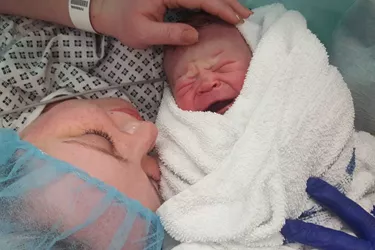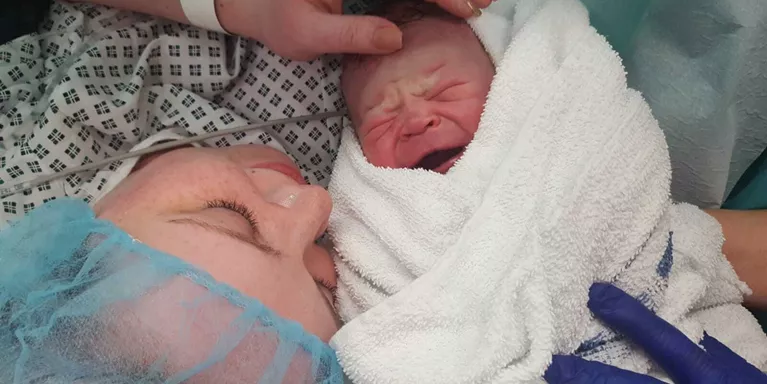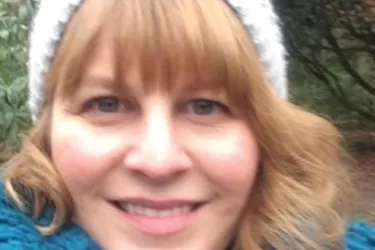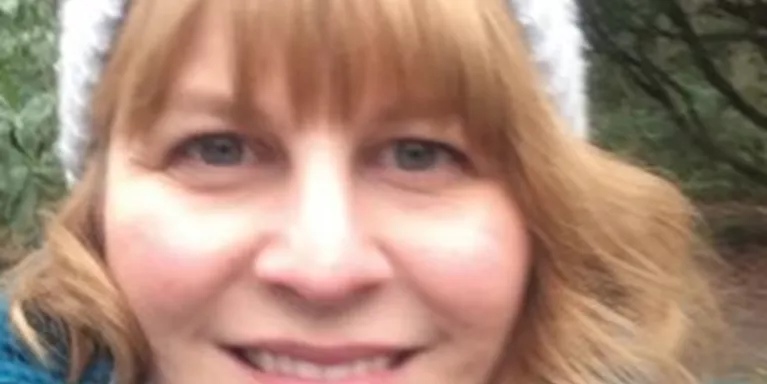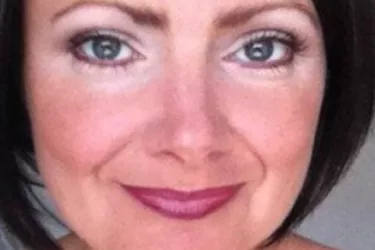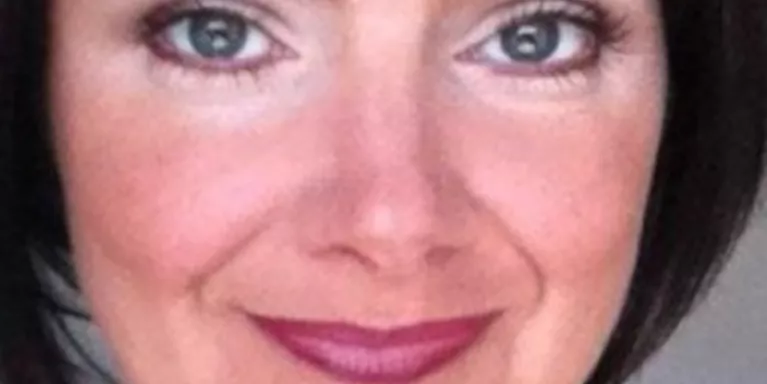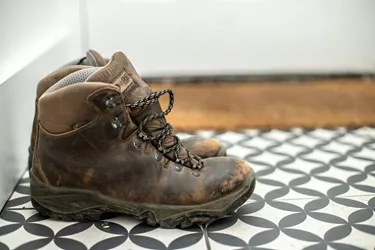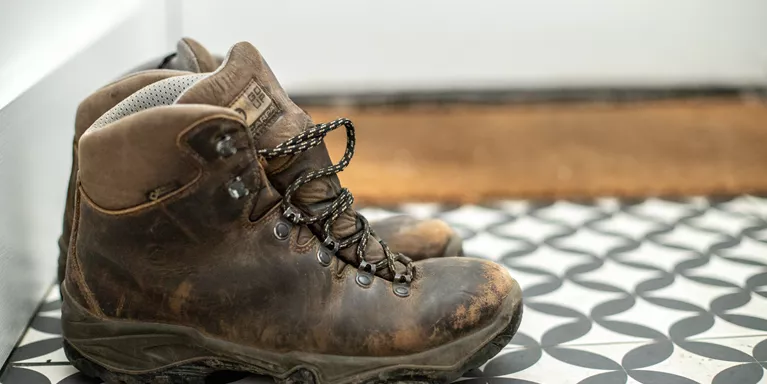The lasting impact of a traumatic birth experience
For Maternal Mental Health Week, Heather blogs about how her experience of childbirth has affected her mental health.
Content warning: This blog includes graphic descriptions of a traumatic childbirth experience. It also deals with the subjects of post natal depression and suicide.
I’ve always been quite a maternal person. But after being diagnosed with severe Endometriosis at 21, I assumed my path to motherhood would involve fertility treatments or adoption. But, after three years of trying to conceive, my husband and I were lucky enough to see the two blue lines we’d dreamed of for a long time.
I was really lucky in that my pregnancy came without many side effects. I did have one week of sleeping and feeling nauseous but it coincided with a prebooked holiday, so it wasn’t too bad.
As with many first time Mums, I had a birth plan and was aware that they don’t always quite go to plan. But through my NCT classes and hypnobirthing practice I felt that I had a good grasp on what was to come.
My labour started naturally, and I managed well at home for some time. We had one trip to the hospital late on Tuesday evening where I was happily sent home to continue progressing and to come back when I felt I needed to.
Late on Wednesday morning there I was back in hospital but out of my comfort zone. My baby was back-to-back, meaning that I was in a lot of pain and my labour was progressing slowly. All of my coping mechanisms were slowly starting to wane, and I felt like I was losing control, not only of the situation but also of the birth I had planned in my head.
After 36 hours I begrudgingly accepted some pain relief and managed to get an hour’s sleep, sat up leaning over a table. I felt defeated, frustrated at my own body and mind for not being able to have the active and calm labour I had planned for.
There were no relaxing playlists, none of the fairy lights and candles I had promised myself. No positive affirmations in sight and a husband who felt helpless.
Fast forward a few hours and I was now on the delivery suite, accepting an epidural I always said I didn’t want and having to lay in bed for my baby to be monitored. There were no relaxing playlists, none of the fairy lights and candles I had promised myself. No positive affirmations in sight and a husband who felt helpless.
After 56 hours of labour, I had racked up sepsis thanks to my waters being broken, had multiple arguments with registrars about interventions and had cried many tears about how my body was failing me, how at the beginning of motherhood I couldn’t even get it right.
My new and wonderful midwife Jenna came on shift and became my advocate, took control, and put me first. We were off to theatre for an emergency c-section within what felt like minutes.
Although this wasn’t what I envisaged, I finally felt like I had a plan, I knew what the next half an hour would have in store and that I’d finally meet my baby. I realise now, how naïve and wrong I was.
Surgery began with Matt (my husband) by my side, in a pair of scrubs that were far too small and the smiles we hadn’t shared for days now were back. The anticipation and excitement that we would meet our child shortly. Matt was going to still have the job of sharing whether we had a girl or boy.

We shared a wonderful moment of hearing our baby cry and then Matt announced we had a boy, Wilf. This excitement soon disappeared. Matt went over to cut the cord, and this is when everything changed. Wilf was bought over to me for a quick glance and was scooped up and taken to neonatal intensive care. In the meantime, I had begun to haemorrhage.
The pressure that my body had been put through had now taken its toll.
Matt was urged to leave and witnessed a scene he wishes he never saw. I lost 3.5L of blood, my body started shutting down, my kidneys failed, and it looked as though I was going to die. Emergency transfusions were under way. In trying to save my womb the surgeons injured my bowel – what had started as a c-section had turned into a life saving operation. At one point I screamed to my midwife just to keep talking to me. I was struggling to stay conscious and truly thought this was it. I was going to die, and I couldn’t even remember every detail of my son’s face.
I have hundreds of pictures of the next few hours. My first hours with my son, first feed, first hug and lots of skin to skin, but I remember none of it.
After hours in theatre, I was taken to the high dependency midwifery unit, where exhausted I finally got to meet my son. I have hundreds of pictures of the next few hours. My first hours with my son, first feed, first hug and lots of skin to skin, but I remember none of it. Even after the medical staff I was still the third person to hold my son, something I still struggle with now.
Over the coming days, Wilf and I both had treatment for sepsis and stayed in hospital. We were allowed home on the Sunday.
I was sent home covered in bruises, with 24 staples still present in my stomach, a shell of myself, with trauma flashbacks and now an additional life to support.
My own body was so injured and tired that it decided I didn’t have the reserves to feed Wilf long-term. As well as this, I couldn’t pick him up, I couldn’t hold him for long and the painkillers just weren’t cutting it.
I am pleased to say that with support from my family and loved ones the coming days and weeks got easier, and my body began its slow road to recovery. This in turn helped with the reaction to mental trauma I had been through too.
Apart from some lingering pain and nerve damage caused by having a blood transfusion, I healed. The first few months of being a mother were incredible. I got into a rhythm, Wilf slept well (apologies to any new Mums reading this) and I felt like I had finally got back to my better self and was adapting to my new life well.
I undertook a debrief about my birth experience with my local hospital (which I would urge so many women to do), but again it bought everything back to the surface.
However, after intense reliving therapy for diagnosed PTSD I found myself feeling uneasy again. I undertook a debrief about my birth experience with my local hospital (which I would urge so many women to do), but again it bought everything back to the surface.
This debrief lead to a formal complaint and actions taken by the hospital. Then within a few weeks of this I was made redundant by my employer whilst still on maternity leave and my Pops passed away.
That was it, my mind and mental health couldn’t juggle it all anymore. I couldn’t lie to myself anymore. I’d been finding socialising with other mums hard for months. I felt like an outsider looking into their conversations. The thought of taking Wilf out and worrying if he would cry, or I’d need to change him quickly, or that people would judge me for giving him a bottle over breastfeeding (little did they know I had no choice because of my health). I started to worry about everything.
I didn’t have hours of cuddles or skin-to-skin to add to our bond. I’d needed help to do the most basic of things since day one and it had all caught up with me.
Over the months since Wilf had been born, he’d settled into a routine quickly. His preference had been to be put down for naps and he had slept through easily. He had formula so both Matt and I could feed him. But I was struggling with back pain, struggling to lift a baby that was 9lb at birth and now forever growing and struggling to use both arms thanks to nerve damage. I didn’t have hours of cuddles or skin-to-skin to add to our bond. I’d needed help to do the most basic of things since day one and it had all caught up with me.
I remember looking at pictures of myself around this time and I still feel you can see a fundamental change, the sparkle in my eyes just dims, it’s almost as if the light of joy was snubbed out. Despite always being a person to encourage my loved ones to talk about their mental health, I felt like this was something I couldn’t share.
I struggled for four months, alone, thinking I was hiding what I now know was my postnatal depression from everyone.
I didn’t have many postnatal depression symptoms that I had seen portrayed in the media. I was still looking after myself and not in floods of tears daily. I still did an amazing job of looking after him, but I felt like we had no bond. I felt like he didn’t love or need me to be there and that he preferred everyone else to me.
I now had medication and counselling on the cards, but the hardest part was being true to myself and how I felt.
In February 2019 when Wilf was 9 months old and I’d been back working for 6 weeks in a brand new job, I began to have difficult suicidal thoughts. I had a plan of how to end my life. It wasn’t that I wanted to die, I just saw no value in me being alive. It was at this point that I knew I had to see the GP. For the next few days I cried, and I cried. I cried in relief, in sadness, in hope and in fear. I now had medication and counselling on the cards, but the hardest part was being true to myself and how I felt, as well as sharing it with the ones I loved. To some I don’t think it was a huge shock, to others it seemed completely out of the blue.
Somehow, in just a few weeks, Wilf turns four and we’ve just found out which primary school he will be attending come September.
Both mine and my husband’s mental health has changed forever following not only the birth trauma and PTSD, but the depression too. I am still taking anti-depressants and have had numerous counselling sessions over the last three years.
I’ve been a career woman and Matt has worked part-time. He is an amazing father and it’s something I am so thankful for when I question my role as a Mum so often.
Every other Mum I know experiences guilt when away from their children or taking time from themselves, but I now also enjoy the bond Wilf and I have. Yes I am the ‘bad guy’ when it comes to discipline but I also get the biggest laughs too.
My mental health is something I will always need to work on and improve at times. But I truly urge other mums to understand the importance of taking care of yourself. If you can do this, taking care of your children becomes more manageable.
It doesn’t have to be their wellbeing or yours that’s put first. Both are just as important.
P.S. A bath or a solo shopping trip to the supermarket don’t count as ‘me time’.


Information and support
When you’re living with a mental health problem, or supporting someone who is, having access to the right information - about a condition, treatment options, or practical issues - is vital. Visit our information pages to find out more.
Share your story with others
Blogs and stories can show that people with mental health problems are cared about, understood and listened to. We can use it to challenge the status quo and change attitudes.










